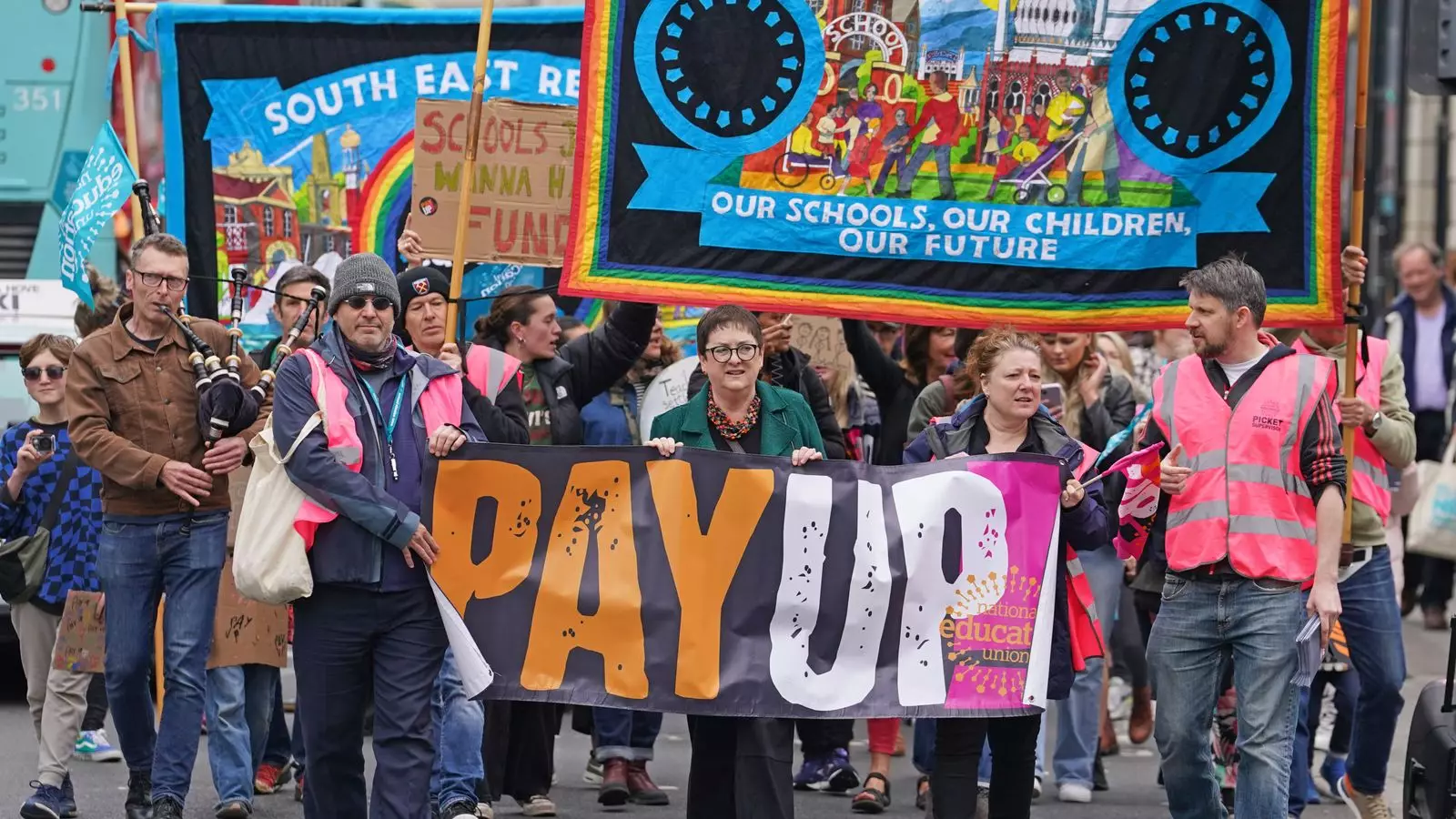The debate over public sector pay has been a hot topic in recent months, with proposals for inflation-busting wage hikes causing quite a stir. Treasury Minister James Murray has acknowledged that there is indeed a cost to not striking a deal on public sector pay. However, he made it clear that the Labour government’s fiscal rules are non-negotiable, casting doubts on whether Chancellor Rachel Reeves would agree to the suggested 5.5% increase recommended by independent pay review bodies.
The reported 5.5% increase for teachers and NHS staff, if implemented, could potentially cost the government billions of pounds. Estimates suggest that such a pay rise could amount to around £3bn, and if extended to all public sector workers, the figure may soar up to £10bn. At present, the government has budgeted for a more modest increase of 1% to 3%, keeping in mind the current inflation rate of 2%.
An increase in public sector pay could pose a significant challenge for the chancellor’s upcoming budget, which is expected to be presented in the autumn. With promises of controlling borrowing and ruling out tax rises, Labour is facing a dilemma in balancing public sector demands with economic stability. Schools and hospitals may struggle to accommodate a 5.5% pay rise within their existing budgets, potentially leading to cuts in other areas.
Chancellor Reeves has indicated that a decision on public sector pay will be made soon, emphasizing the need to consider the consequences of not settling on a deal. She highlighted the costs associated with further industrial action and recruitment challenges within key sectors such as education and healthcare. The government aims to approach the issue in a systematic manner, ensuring that any response aligns with the fiscal rules and public spending limits.
Critics of the government’s approach, including former Chancellor Jeremy Hunt, have called for restraint in public sector pay to avoid potential tax rises. However, dismissing claims of inheriting a dire economic situation, Hunt believes that managing public sector pay can mitigate financial burdens. On the other hand, the National Education Union warned that ignoring pay-review recommendations could escalate into strike action, jeopardizing the fragile balance in public sector relations.
Public sector pay has far-reaching implications beyond immediate financial costs. The recruitment and retention of essential workers in fields such as education, healthcare, and policing are at stake. Failing to address the demands for fair compensation may lead to long-term repercussions, affecting the quality of public services and employee morale.
The debate on public sector pay highlights the delicate balance between meeting the demands of essential workers and adhering to fiscal responsibilities. While a significant pay rise can address crucial issues of recruitment and retention, it also poses challenges in budget management. The government’s decision on public sector pay will not only impact the economy but also shape the future of key public services.


Leave a Reply